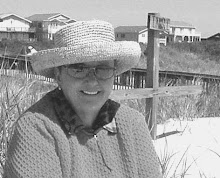 International adoption is really taking a beating in the press. Allegations of corruption point to the role that foreign fees and foreign orphanage donations play in bringing children into the adoption process. Incentives paid to “baby finders” to meet the high demand from potential adopters amount to little more than child-trafficking.
International adoption is really taking a beating in the press. Allegations of corruption point to the role that foreign fees and foreign orphanage donations play in bringing children into the adoption process. Incentives paid to “baby finders” to meet the high demand from potential adopters amount to little more than child-trafficking.
There are over 140,000,000 children worldwide in need of care, and 50 prospective adoptive parents for every 1 adoptable international infant. What many eager prospective adoptive parents do not know is that the vast majority of these children are not adoptable. Most are brought to local orphanages simply because their impoverished parents cannot afford to feed them.
Sadly, what was once a humanitarian response to a human need---willing adults reaching out to help a child in dire need---has become a business response to the fundamental law of supply and demand. And the demand is for the youngest and healthiest. Whenever these two basic factors are out of whack, corruption finds fertile ground. Despite some cases of clear corruption, U.S. adoption agencies active in Vietnam, Guatemala and other countries under close scrutiny by the Department of State say that most intercountry adoptions are ethical.
While some adoption agencies in this country have come under a dark cloud of suspicion and attack, many have commendable records for outstanding humanitarian work around the world to help children and keep families together. Dawn Degenhardt, founder of MAPS in Houlton, Maine, retired three years ago after working for over 35 years in domestic and international adoption and established The Degenhardt Foundation. And Filis Casey, founder of The Alliance for Children in Wellesley, Massachusetts, started The Alliance for Children Foundation, an international relief organization dedicated to improving the physical and emotional well-being of abandoned children living in orphanages in Asia, Eastern Europe and Latin America.
Both women are long-time advocates for children. “The children who are adopted are the lucky ones,” says Casey. “My concern is for the ones left behind.” So, working closely with local officials in Hubei and Anhui Provinces, the Foundation built apartments for Chinese foster parents to live with groups of 6 orphans as stable families. It is modeled after the very successful Sunbeam Village project in Hefei that has been supported by the AFC Foundation for 5 years. The Foundation funds additional projects in Colombia, Ecuador and Russia. Click here to read more.
Degenhardt builds orphanages and hospitals, but she also funds special projects such as the Boat Builder Project in Cam Kim, Viet Nam. Here, economically disadvantaged youth are receiving training in traditional boat building skills from master boat builders. Students are learning a valuable skill and the boats produced from their work will be given to poor families. Click here to read more.
Until recently, a combination of adoption fees paid by families, donations, fundraising efforts and grants funded most humanitarian projects. However, international adoption fees can no longer be counted on to support humanitarian projects of such magnitude. “The need is still there,” says Degenhardt. “Do we simply turn our back on the children?”
For Casey, Degenhardt and others, the only answer is “no.”
 International adoption is really taking a beating in the press. Allegations of corruption point to the role that foreign fees and foreign orphanage donations play in bringing children into the adoption process. Incentives paid to “baby finders” to meet the high demand from potential adopters amount to little more than child-trafficking.
International adoption is really taking a beating in the press. Allegations of corruption point to the role that foreign fees and foreign orphanage donations play in bringing children into the adoption process. Incentives paid to “baby finders” to meet the high demand from potential adopters amount to little more than child-trafficking. 




No comments:
Post a Comment